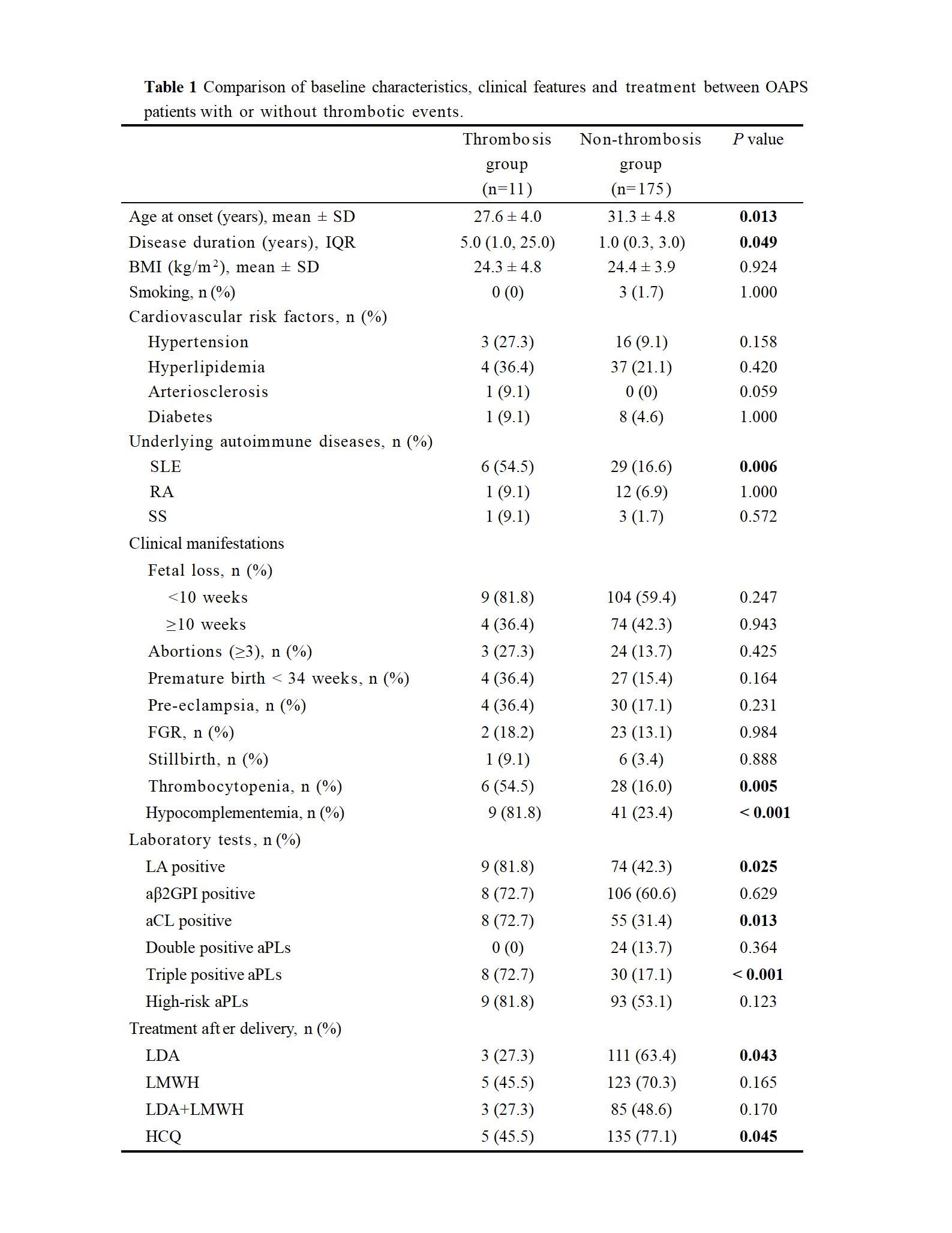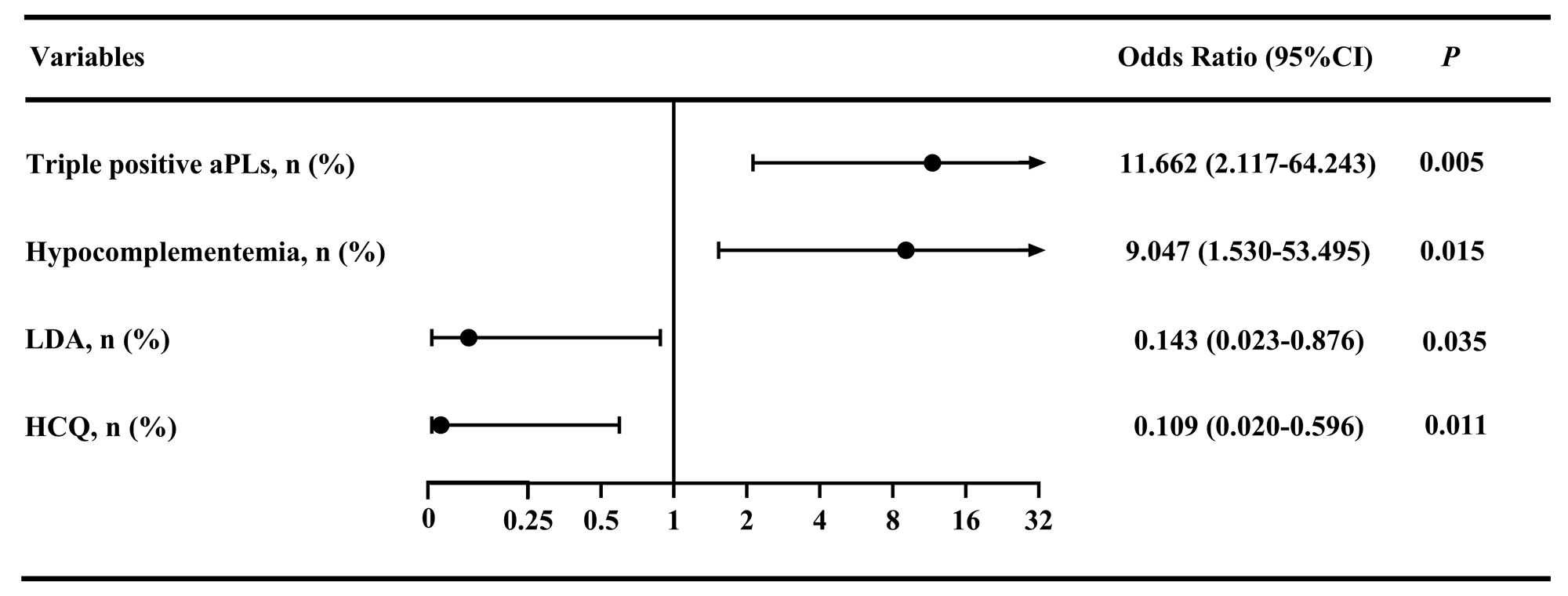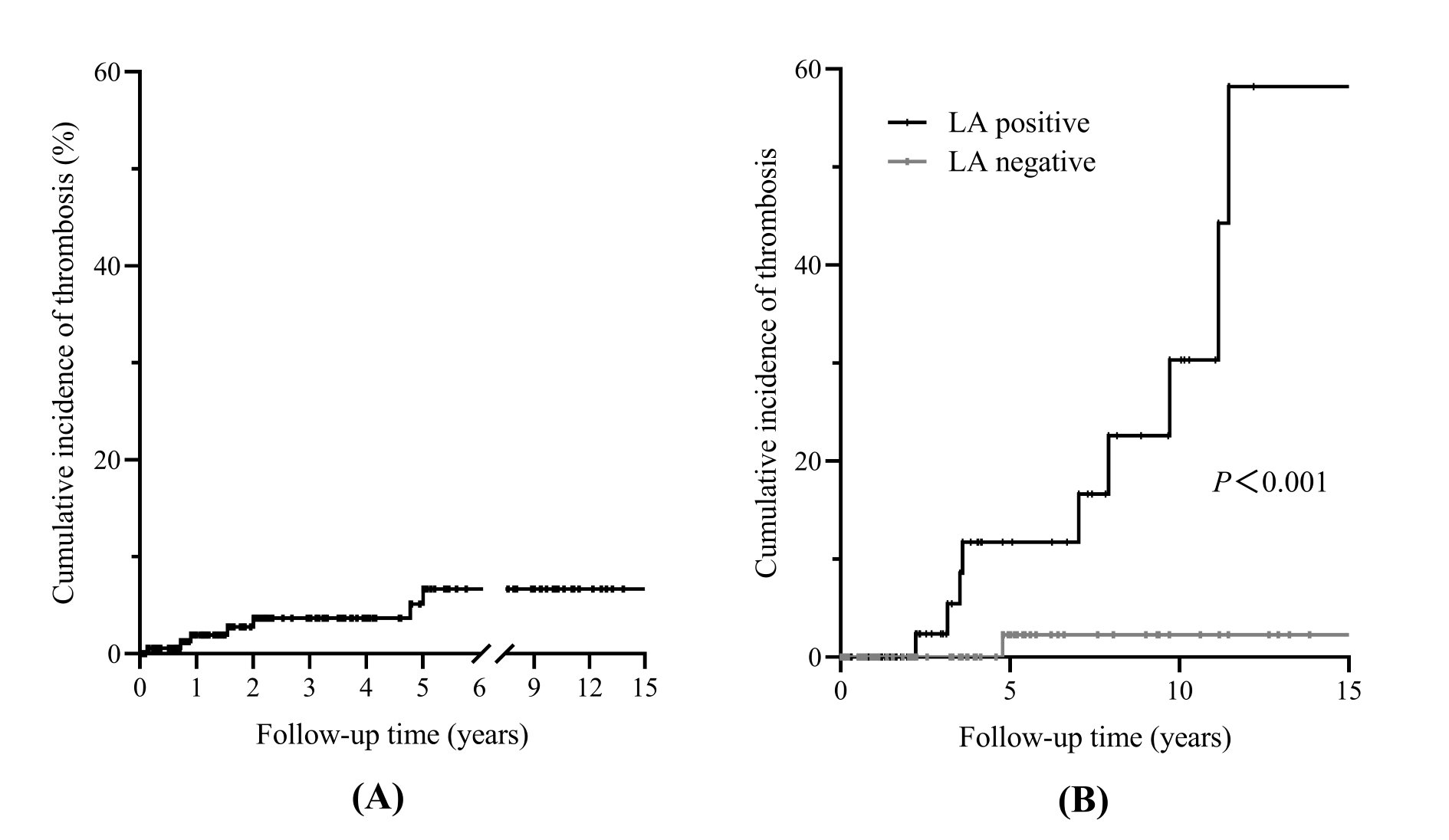Session Information
Session Type: Poster Session A
Session Time: 9:00AM-11:00AM
Background/Purpose: Limited evidence exists regarding the long-term risk of thrombosis in patients with obstetric antiphospholipid syndrome (OAPS). This study aimed to investigate the clinical features and risk factors associated with the first thrombosis in isolated OAPS patients.
Methods: Clinical and laboratory data from female patients with isolated OAPS were collected. All patients were followed up until the first thrombotic event or until the end of the study. The first thrombotic event during or after delivery was recorded. Logistic regression analysis was used to identify independent risk factors associated with the first thrombosis in isolated OAPS patients.
Results: A total of 186 OAPS patients were included in the study. During a mean follow-up period of 5.4 years, 11 patients experienced thrombotic events, resulting in a 15-year cumulative thrombotic incidence of 6.7%. Triple positive antiphospholipid antibodies [aPLs, odds ratio (OR) = 11.662, 95% confidence interval (CI) = 2.117–64.243, P = 0.005] and hypocomplementemia (OR = 9.047, 95% CI = 1.530–53.495, P = 0.015) were identified as independent risk factors for the first thrombosis in OAPS patients. Additionally, the use of low-dose aspirin (LDA, OR = 0.143, 95% CI = 0.023–0.876, P = 0.035) and hydroxychloroquine (HCQ, OR = 0.109, 95% CI = 0.020–0.596, P = 0.011) were associated with a decreased risk of thrombosis.
Conclusion: Triple positive aPLs and hypocomplementemia are risk factors for the first thrombosis in OAPS patients. The use of LDA and HCQ may be associated with a reduced risk of thrombosis.
OAPS, obstetric antiphospholipid syndrome; BMI, body mass index; SLE, systemic lupus erythematosus; RA, rheumatoid arthritis; SS, Sjögren syndrome; FGR, fetal growth restriction; LA, lupus anticoagulant; aβ2GPI, anti-β2-glycoprotein I antibodies; aCL, anticardiolipin antibodies; aPLs, antiphospholipid antibodies; LMWH, low-molecular-weight heparin; LDA, low-dose aspirin; HCQ, hydroxychloroquine.
To cite this abstract in AMA style:
luo l, Cai Q, liu x, Hou Y, Li C. Risk Factors of First Thrombosis in Obstetric Antiphospholipid Syndrome [abstract]. Arthritis Rheumatol. 2023; 75 (suppl 9). https://acrabstracts.org/abstract/risk-factors-of-first-thrombosis-in-obstetric-antiphospholipid-syndrome/. Accessed .« Back to ACR Convergence 2023
ACR Meeting Abstracts - https://acrabstracts.org/abstract/risk-factors-of-first-thrombosis-in-obstetric-antiphospholipid-syndrome/



